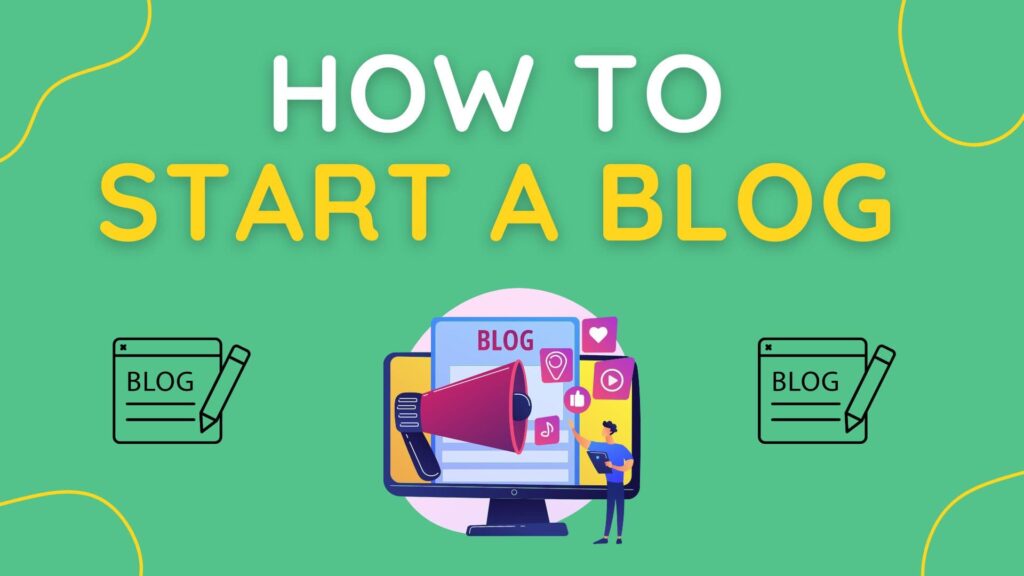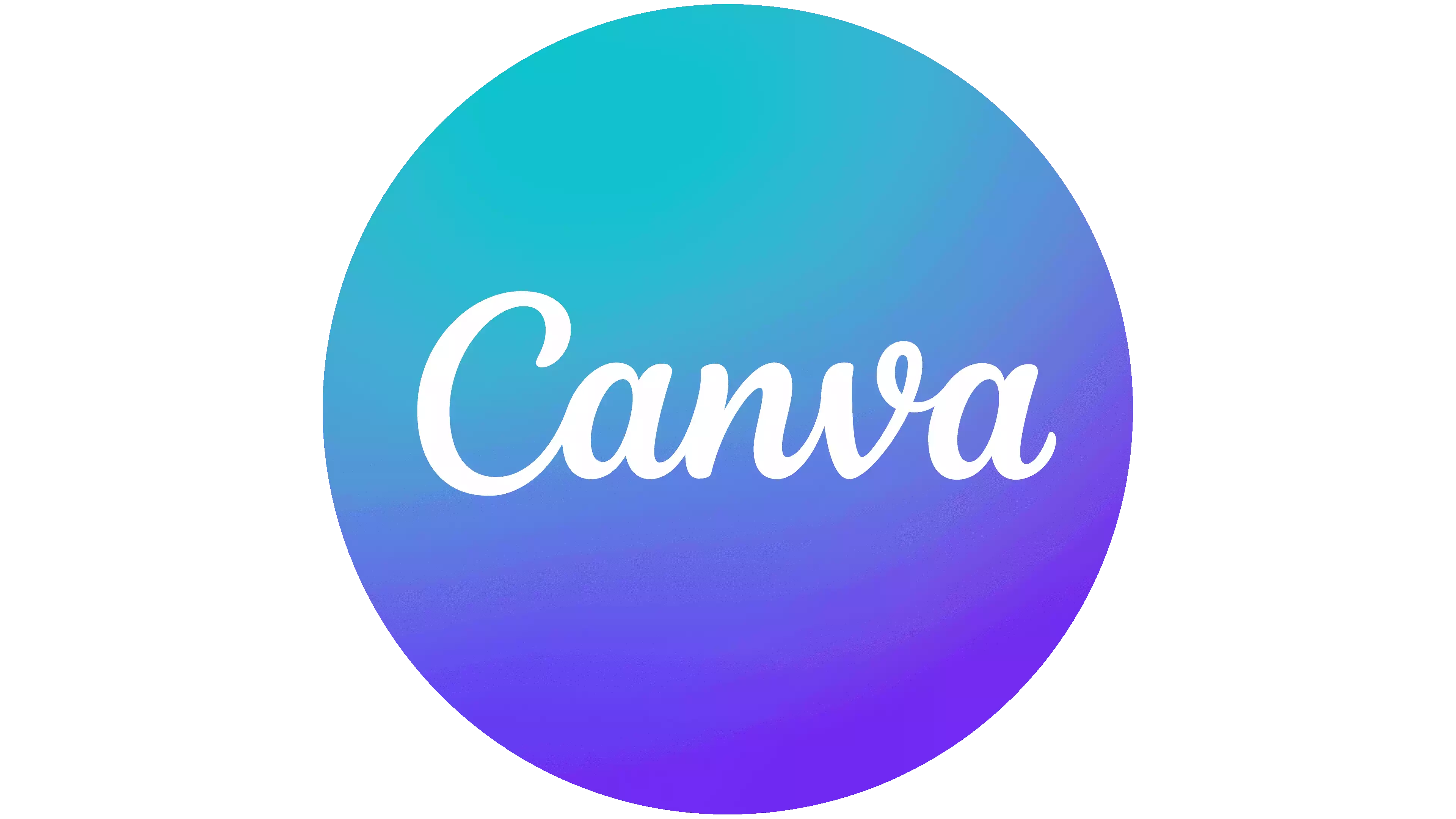
Sammie Ellard-King
I’m Sammie, a money expert and business owner passionate about helping you take control of your wallet. My mission with Up the Gains is to create a safe space to help improve your finances, cut your costs and make you feel good while doing it.
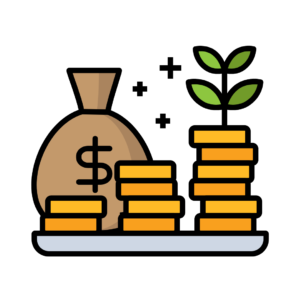
Quickfire Roundup:
Starting a blog is both a lot of fun and a massive undertaking at the same time. Having your voice heard, educating and inspiring people with your words online is extremely rewarding.
As your blog grows, you can monetise it and create a handsome income that could vastly outdo your 9-5!
Blogging is one of the most popular side hustles. The words ‘How to start a blog’ are searched 10s of thousands of times a month, and understandably so.
There are people all over the world making a full-time income from blogging, and some are earning 7 figures a year or more.
The draw of being able to work your own hours and being your own boss is certainly an enticing one!
Whether you’re a stay-at-home parent, student, or simply someone looking for a little extra cash, blogging can be a flexible and rewarding endeavour.
As someone with profitable blogs myself, I’m here to tell you that it’s more than possible, even in 2023.
The internet is alive, and people worldwide use search engines and social media to find information, and that’s where your blog could come in!
This article will guide you through how to start a blog and, most importantly, start making money from it.
Table of Contents
How to start a blog UK?
Starting a blog is the easy part. You pick a topic and write about it to your heart’s content but to make a blog a success, you need people to see it.
This means you need to create a place for them to view it, which means you’ll need a blog housed on your own website.
Next up is traffic, and this can come from many different sources, but the most popular one is search engines, namely Google.
Organic traffic from search engines is a golden ticket (it’s free), but there is much to learn before generating substantial amounts that can make you rich.
Fact: 95% of bloggers quit in the first year. There are more than 500 million blogs viewed 20 billion times each month.
Content marketing is a 500 billion pound business, and blogging is a huge part of this juggernaut.
It’s important to note that blogging is not a get-rich-quick scheme. Blogging takes time, and it can take up to 12 months before you start making any money and 24 months before you create enough income to replace your full-time job.
It’s just fact.
Why do people quit blogging?
People enthusiastically start blogs because they see a YouTube video of a success story or hear about writing blogs as a career and get sucked in by the digital nomad life.
The hard and brutal truth before we get into the essential steps of learning how to start a blog is that it’s tough.
DO NOT get into this thinking that 5-10 blog articles put out over a year will make you money. It won’t.
You’ll need a surprising amount of content crafted over a long period and the patience to see it through before you get organic traffic.
If you’re willing to get past that and stay the course, then the profits in this game are HUGE.
16 essential steps to making a blog successful
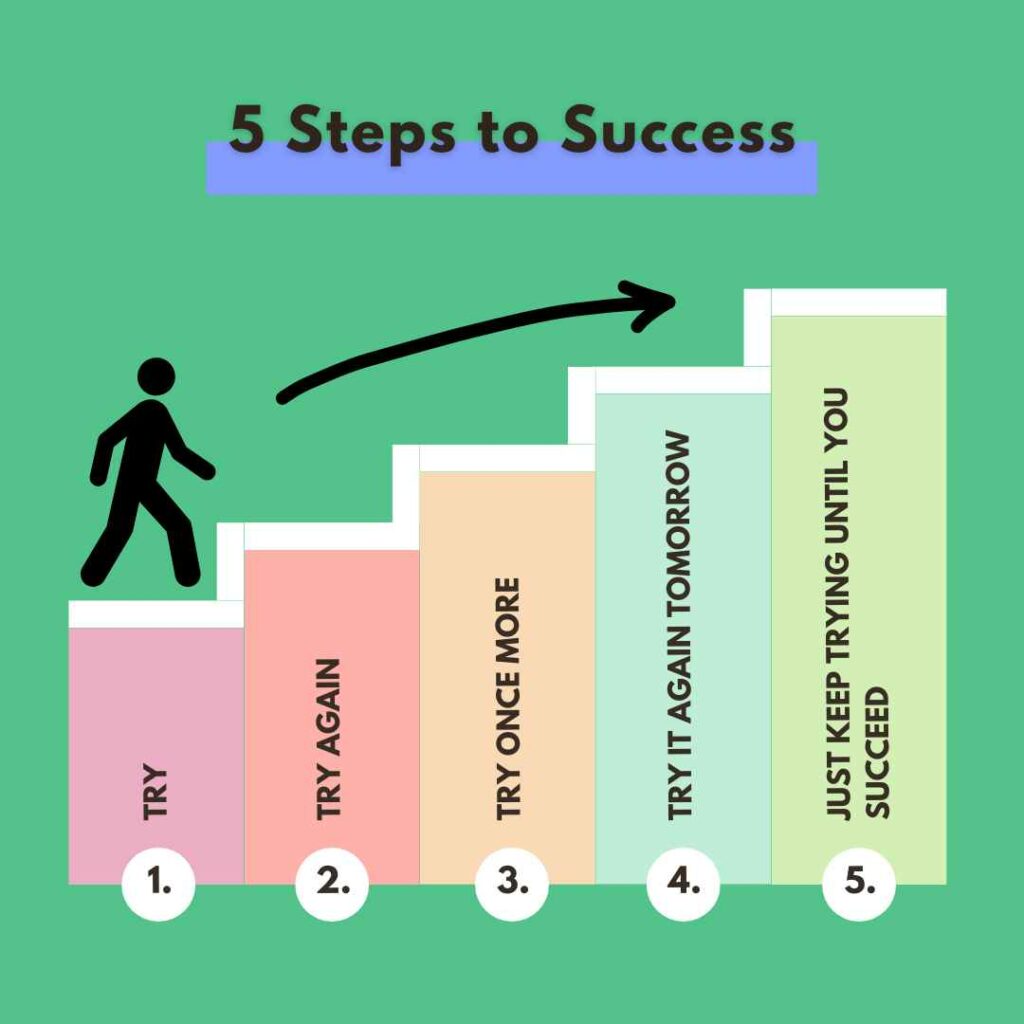
1. How to pick a niche?
Picking a niche is the most crucial decision you’ll make. It all starts with something you’re interested in.
This could be something you do in your spare time, are learning about or are just really good at.
Whatever the subject matter is, it must be something that, in 24 months, you will not be bored writing about it.
We suggest making a list of what you enjoy doing, what you’re good at and what you’re interested in learning more about. Somewhere in there is your niche.
Now it’s about niching down to something that is targeted within a category.
For example, if you wrote down cooking, niching down could be Thai cooking, or another example could be travelling, and you niche down to travelling in Wales.
Profitable Niches Include:
- Personal Finance – Side Hustles, Making Money Online, Saving Money, Frugality
- Travel – Regions, countries, cities
- Fitness – Building muscle, losing weight, martial arts
- Technology – Help guides, gaming, gadgets
- Mindfulness – Yoga, self-development, stress relief tips
- Food – Kitchen tips, recipes, shopping tips
- Crafting – making products, carpentry, t-shirts, clothes
2. Picking a domain / brand name
Next up is finding a domain. You can do this via websites like GoDaddy or Google domains. Tie in your domain/brand name to something in your niche.
Make it obvious but also unique, so it stands out.
For example – a good food blog name could be cookfreshandsimple.com, or a mindfulness blog could be mindbodyandsoul.com.
You’ll find that the obvious ones are already taken or cost a fortune, so have a play around with a few ideas.
Having some brandable is also something to consider. If you look to expand your blog into products, courses or even stores (it’s been done) then you want something that will resonate.
Thinking big now could pay off later down the line.
Pro tip: always get the .com if it’s available. This helps with global traffic rather than country-specific domains.
3. Design a logo
Now you’ve got your domain next step is to think about your branding. You don’t need to pay for some expensive logo and branding pack to be successful.
Use websites like Canva to keep costs down and create something you love.
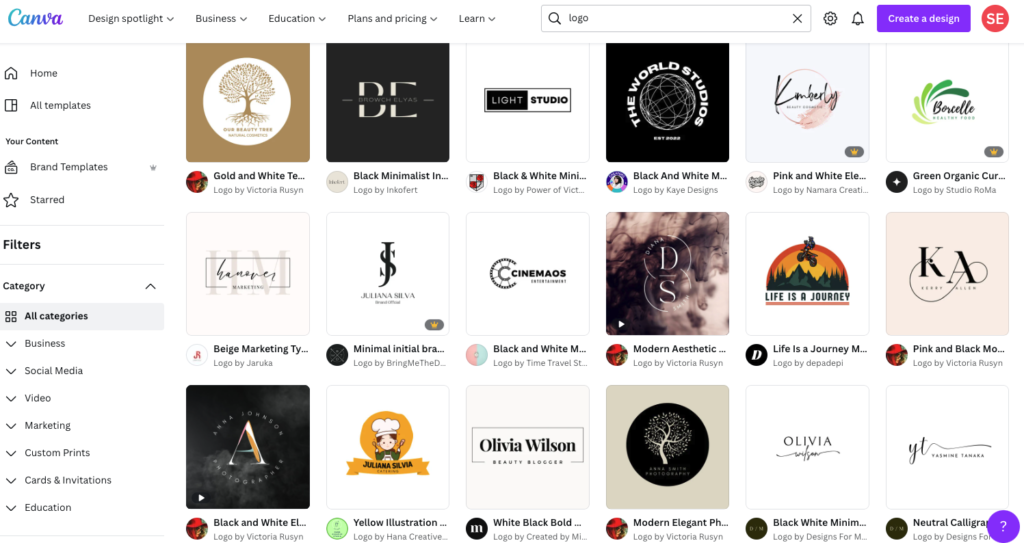
There are 1000s of templates like you see in the picture that you can play around with.
Once established, you can go back to it and create something unique, but for now, don’t waste a lot of time; just get started with one from there.
Pro tip: A Canva subscription is your best friend throughout your blogging journey. This will help you with imagery, social media artwork, ebooks, newsletter templates and anything you can think of that design relate
Canva makes it easy to create high-quality professional designs and easily share or print them. Choose from 1000s of templates on Canva Pro.
4. Choose a theme / host
Now you’ve got your domain name, and your logo sorted, it’s time to start building your site.
If you want to take it seriously, ignore the sites like Medium and Blogger. You need to build a WordPress site.
Now I can hear you saying I know nothing about building websites and that’s where a good theme comes in.
Firstly though you need somewhere to host your website.
What is hosting?
Hosting is how your website gets online. It hosts your domain and allows you to broadcast across the web. They also store all your files, content, images and designs. Good hosting is vital as it keeps your website fast and active.
There are many great hosts, but the best web hosting for beginners is Cloudways or Bluehost. They offer cheap packages that you can scale as you grow and great support.
What is a theme?
A theme is the design of your website and its look, feel and functionality. It’s your front end and what the user sees.
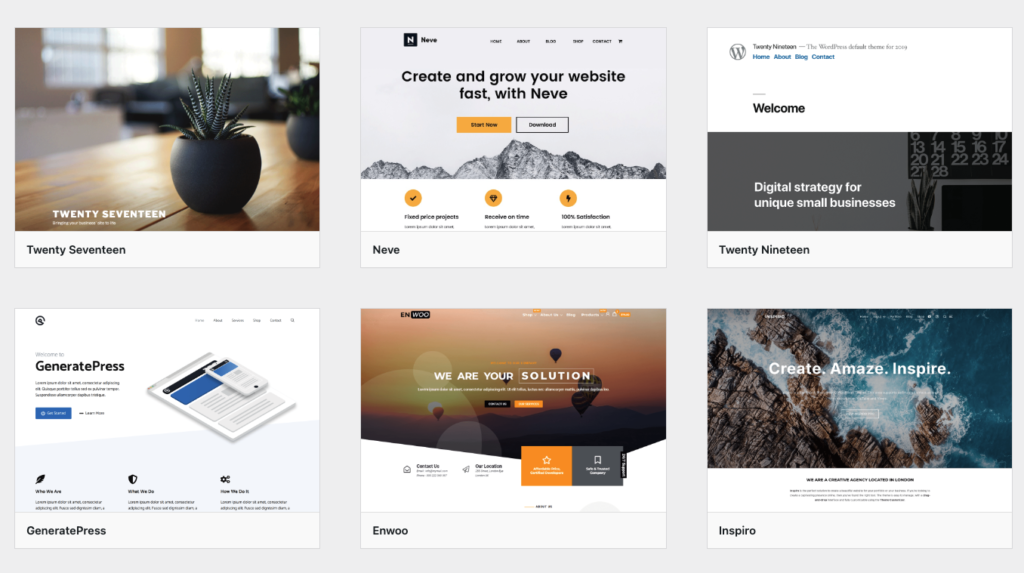
It’s vital to pick a visually impactful theme and a fast one. A light and responsive theme across all device types, including mobile, is crucial to your website’s long-term success.
Basically a theme gives you a ready-made framework that you can put your own text and images on.
We suggest Astra or WP Ocean.
5. Use page builders
Once you have your theme and hosting sorting, it’s time to start building your WordPress site. Honestly, use YouTube to help you if you’re starting from scratch.
Building your website can be the biggest stumbling block for new niche website owners, but having a good theme and then picking a good page builder will help make this a lot easier.
Let’s face it nobody wants to be custom coding their first-ever website.
Elementor is our choice. It’s excellent because it’s free and allows you to drag and drop customisable sections directly onto your web pages. For beginner bloggers, this is what you need.
Pro tip: Utilise the free version until you want to expand and then upgrade to Elementor Pro – it’s a yearly cost but the extra features are worth it for user experience.
6. Create a content strategy
Having a plan for your blog is what will set you up for long-term success.
You’ll be lucky to see any traffic if you write about any old topic within your niche with no strategy.
Firstly, you need to define why. What is it about what you’re writing that will help the reader?
Then, build our topics and potential article titles. You can refine this once you get into keyword research (more on this in a moment).
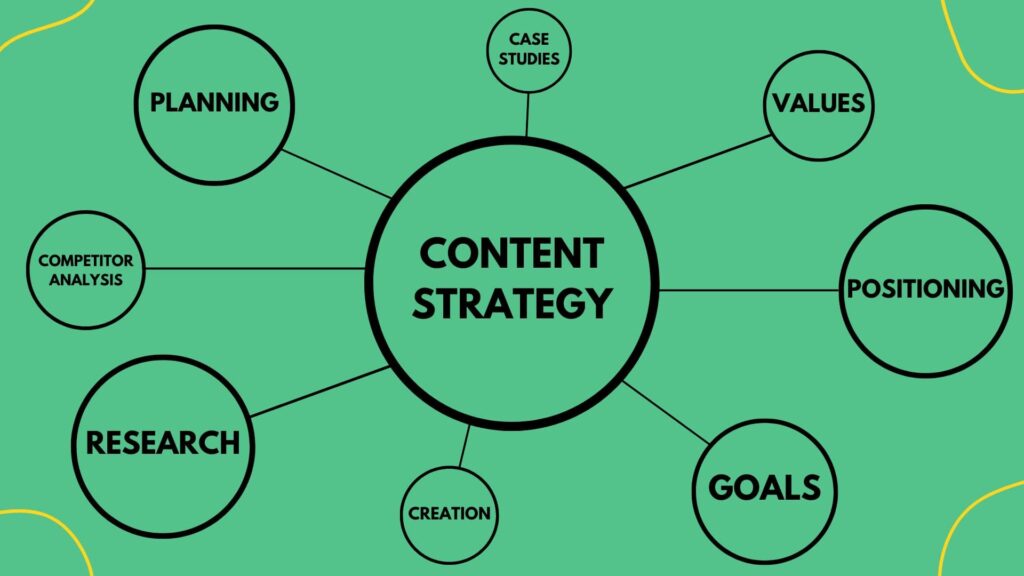
I would also look at your potential competitors and their website structure. What topics are they writing about, and how in-depth are the articles? Are they writing certain post types in a particular style?
Ask yourself whether I can write better content than this. If the answer is no, perhaps that niche isn’t for you, but if you think you can, even if that’s not right away, then this is how you win!
7. SEO
Search engine optimisation is your gateway to success. If you nail the basics, you can create a successful blog.
SEO does exactly what it says on the tin—optimising your web pages and blogs so they’re friendly to search engines like Google. Doing SEO well will rank your pages and bring you organic traffic.
The goal for every blog you write is to rank on page 1 of Google. There are other search engines, but Google is the big dog.
Position 1 on Google gets 34% of the traffic for that particular search term, which goes right now to 2% at position 10.
If you’re on page 2 – forget about getting any traffic, so learning SEO and optimising your pages for search is essential.
Sure there are other ways to generate traffic. Social media is a great one, but organic traffic from Google is your ticket to success to make this your number one goal.
Pro tip: SEO can take months to work properly. It’s a slow process but if you keep learning and creating content the results will compound over time.
8. Keyword research
Now I hear you saying SEO sounds great but a key part of it is your keyword research.
For example, if I hop onto google and type ‘best sauces for pasta’ or ‘how to fix my laptop,’ that phrase is a keyword.
Higher-value keywords that are transactional or higher in traffic are harder to reach, so finding longtail keywords (longer phrases) at the beginning is how to get traffic earlier to your blog.
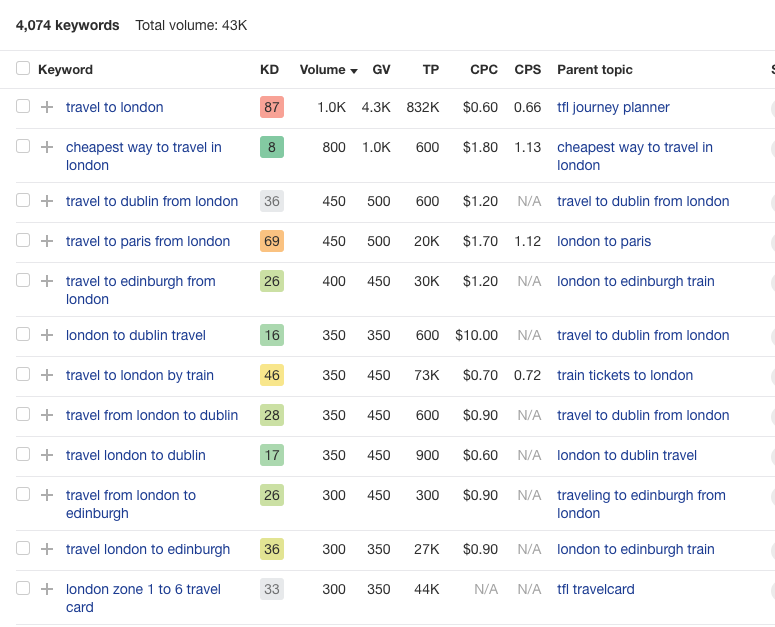
As you can see in the image just one keyword can have 100s of variations so before you start writing your blogs, I would do a good week or two of keyword research.
Find at least 50 KWs on your topic of choice before writing anything. To do this, you need some help.
There are some fantastic free keyword research tools such as Google itself, Answer the Public and Ubersuggest, but I would pay for one of the top ones like Ahrefs or SemRush for a month and get a tonne of keywords, then cancel the subscription.
Again use YouTube to help you learn about some top tips for Keyword Research.
9. Copywriting
Right, so you’ve got your content strategy, you’ve built your basic website structure, you’re armed with a list of keywords, it’s finally time to start writing your blog posts.
Before you start writing, remember that the blog post should aim to help someone. Write for the user in a conversational tone that engages them from the first word to the last.
Find unique angles to topics, interesting research or stats, look for points of difference but most importantly, get the information to the user as quickly as possible.
You’ll need a solid introduction and then multiple sections within your article. Break it down. Nobody likes a wall of text.
Pro Tip: Don’t worry. Your first 10-15 articles will be rubbish. It’s just a fact. Keep refining and analysing what your competitors do well, and you’ll improve with each article.
10. Build an email list
The money is in the list. Repeat; the money is in the list.
Your email list is your tribe, your loyal followers, your clan. These people have read your article and liked it so much that they want to hear more from you.
Building your email list should be a priority from day 1. You do this by adding sign-up forms to your website.
Once you build an email list, you can use it to teach, inspire, sell your own products or other people’s.
Social media channels could disappear tomorrow, but you own your list, so start building it from day one.
The best email providers for beginners in 2023 are:
- Mailerlite
- Mailchimp
- ConvertKit
- Mailpoet
11. Authority and backlinks
When you first start a website, you will have no authority in the eyes of Google. Authority is created by writing expert content about a topic and generating backlinks to your website or articles.
A backlink is where another article or website links to yours. They provide Google with a vote of confidence which increases your authority.
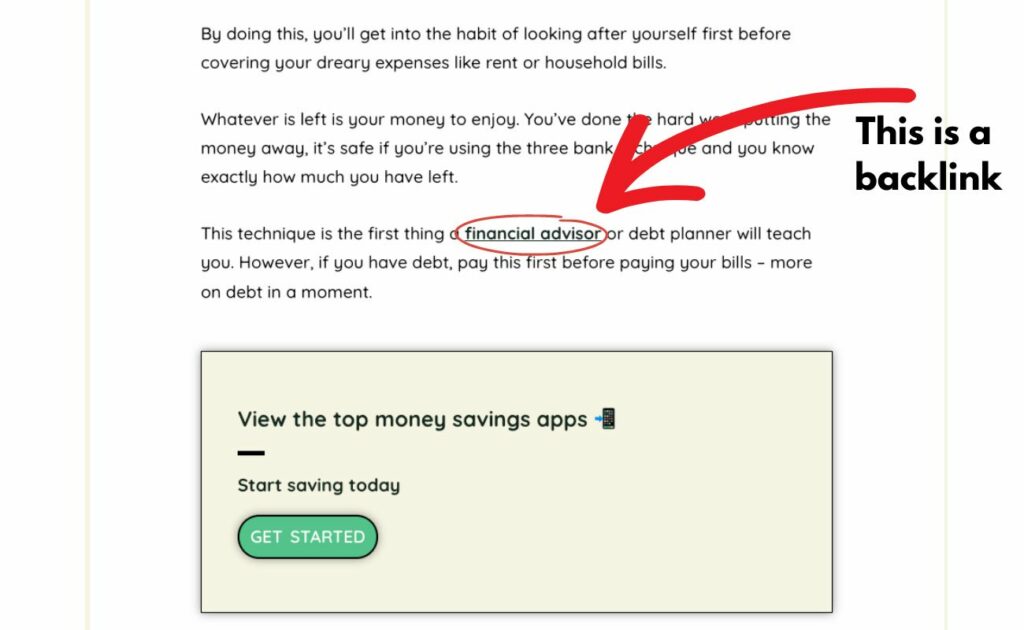
The higher your website’s authority, the easier it is to rank for more competitive keywords.
Google frowns upon buying backlinks, but you can generate them with excellent content that people want to link to naturally. You could also contact journalists for quotes in articles in magazines and newspapers.
Pro tip: When you first start out sign yourself up to free directories and reach out to websites that list blogs. This is a good way to get some backlinks to your homepage early on.
12. How to monetise your blog
There are lots of ways to monetise your blog. The most popular is through affiliate marketing which is gaining commissions from brands for recommending and selling their products.
For example, Amazon has an affiliate program, so you could suggest a product related to the article, and if they go to buy it, you receive a percentage of the sale.
Other ways to monetise include:
- Ads
- Digital products – ebooks, printables, videos
- Courses
- Sponsorships
- Coaching
- Webinars
- Memberships
13. Images
As we said above, nobody likes a wall of text. In fact, articles with images have 27% more engagement than those without, so they’re super important.
You can add stock images from your Canva subscriptions and re-size them accordingly to how you like but to take it to the next level, look at creating bespoke imagery

You could use your phone or camera to do this, but you can also create infographics on Canva like the one above that we built for Up the Gains.
It allows you to get your branding and info across in the article in a visually impactful way.
Pro tip: Bespoke imagery can drive up to 12% more organic traffic than those just using stock images. Google also likes websites that don’t use repeat or stock images, so bespoke imagery is the way to go if you have the time to create them.
14. Promote your blog
You’ve got all this great content and your site is running but that’s only just the beginning. Next up you need to promote yourself to get recognised and generate some traffic.
Family & Friends
These guys are your biggest supporters whether you want to show them your work or not.
Getting them involved at the beginning will be great for promotion but also feedback too.
Blogging communities
There are 1000s of blogging communities focused on their niches. You can find them on other websites, Facebook groups and sub forums of Reddit.
Engaging with these people will help you pick up on trends and potentially links from other sites.
Social Media
Social media is a great way to drive traffic to your blog from day 1. It can also be a huge distraction if you’re limited on time and only working on your blog for a few hours a week.
Consider one or two social accounts which you can dedicate a little time each week.
There are also some great tools out there that can help you schedule posts so you can do a bunch of work upfront, and then it posts for you over the week or month.
Like with blogs, it’s crucial to have a content strategy and a regular posting schedule. If you start and stop, you’re less likely to get results.
If you have time to build up these channels, use them to forward your brand and link out to relevant blog posts where you can.
Guest posting & Collaborations
Working with other bloggers is a great way to connect with an audience that you want to be in front of.
If you can arrange a link back to your website via guest posting on their site where you write an article for them is a great way to showcase your expertise in the space.
15. Create a Google My Business account
Google My Business is a great way to display your business information and generate local search traffic. It also sends Google signals that you’re a legit business.
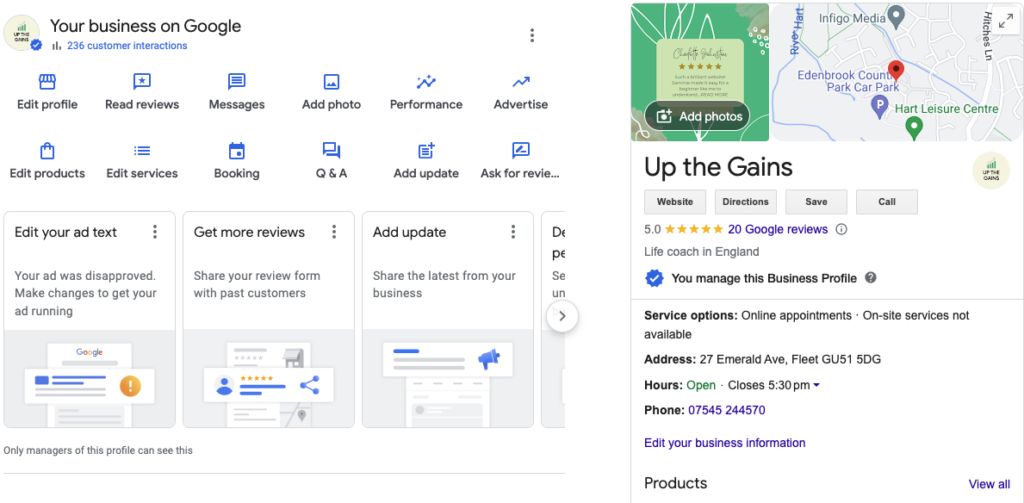
Consider asking loyal followers and email subscribers to leave you positive Google reviews. This shows Google people trust you and that you’re a website, they should notice.
Equally make sure your listing stays up to date and add any new products or important company information to it.
Pro tip: Ask friends and family to write reviews for you early on. Space them out over a number of weeks so it looks less obvious.
16. Think like a business
You’ll have to invest at the start to get going. Sure, getting free versions of page builders and themes is possible, but there are some fixed costs like hosting and an email provider, albeit no more than £60 a month.
If you want more flexibility and paid tools, then you will have more costs to think about.
That means you should treat your website like you are starting any small business and keep track of income/expenses properly.
Sure, you may have to bootstrap (pay for) everything for the first year, but once niche websites take off, they can explode quickly, and you should be making your money back and more after 12 months.
Why it's important to stay patient?
Lastly, it’s so important to have patience when building blogs or niche websites, as they’re also known.
As you can see below that some websites take years to reach their full potential but when they take off the growth can be explosive.
If you implement all of the skills we listed above you will learn how to get your blog noticed.
This blog was probably earning a full time income two years into the journey but only really took off after 6 years!
Now based on these traffic numbers this blog is earning £10,000+ a month.
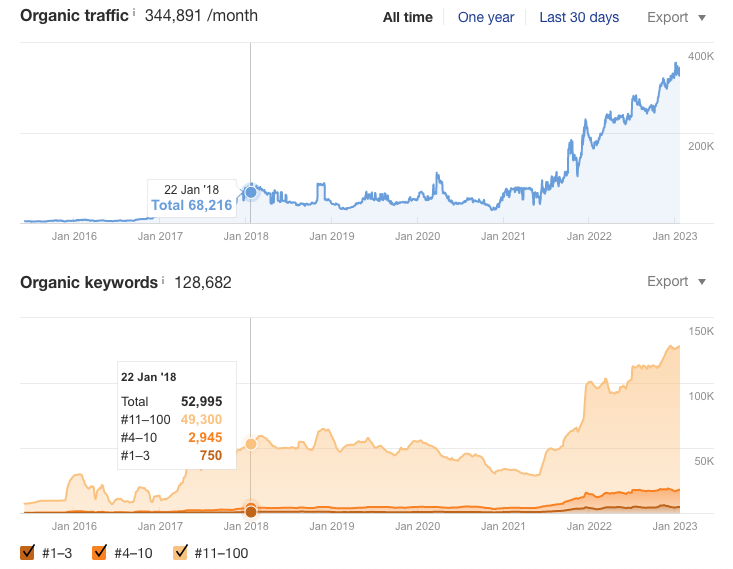
New websites can take 3-4 months before they even see a few clicks from Google, so don’t let this get you down; it’s completely normal.
Keep writing new content, hitting publish and repeat!
Free Resources
Youtube Channels
- Miles Beckler
- Adam Enfroy
- Niche Website Builders
- Doug Cunnington
Podcasts
- Niche Pursuits
- Authority Hacker
- Rick Mulready – The Art of Online Business
FAQs
How much does it cost to start a blog?
The highest cost is getting started, and this usually ranges between £100-300 depending on the tools you decide on.
Your monthly fees should vary between £30-100, which could be higher depending on your chosen subscriptions and hosting costs.
How do bloggers get paid?
Commissions and ad revenue is paid directly into your nominated bank account. If you have ads on your site, you will get paid by the ad network.
When you start out, this will come from Google Ad Sense, but as you get more traffic, you can upgrade to more extensive ad networks like Mediavine.
You will work directly with the company or through an affiliate network like Awin, Impact or Rakuten for affiliate marketing commissions. This will change by country and the brands you work with.
Are blogs still relevant in 2023?
77% of website users will get information regularly from blogs in 2023. This number is only set to increase as more users worldwide gain access to the internet.
Blogs are here to stay for the foreseeable future, so yes, blogs are still relevant in 2023 and likely to stay that way.
What is the average salary for a blogger?
Bloggers make on average £200-£2,000 a month after 12 months. Established blogs 2+ years can make £3,000-£15,000 a month. This varies depending on the niche you are in and the amount of content you have on your site.
Further established bloggers with successful blogs, social media and YouTube Channels can earn 7 figures plus a year. It’s all down to how much you are willing to put into it.
Conclusion
Now you know how to start a blog in the UK and what it’s going to take.
Obviously, each of these essential steps goes a lot deeper, so if you are to make it a success spend some time on YouTube, podcasts and other blogs to learn as much as you can.
This is even more important for those who need marketing or copywriting skills, as you will need to learn everything from scratch.
But, if you’re willing to put the work in and stay the course, blogging can earn you more than most day jobs, giving you the freedom to spend your time as you please.
Good luck!
Share this article with friends
Disclaimer: Content on this page is for informational purposes and does not constitute financial advice. Always do your own research before making a financially related decision.

